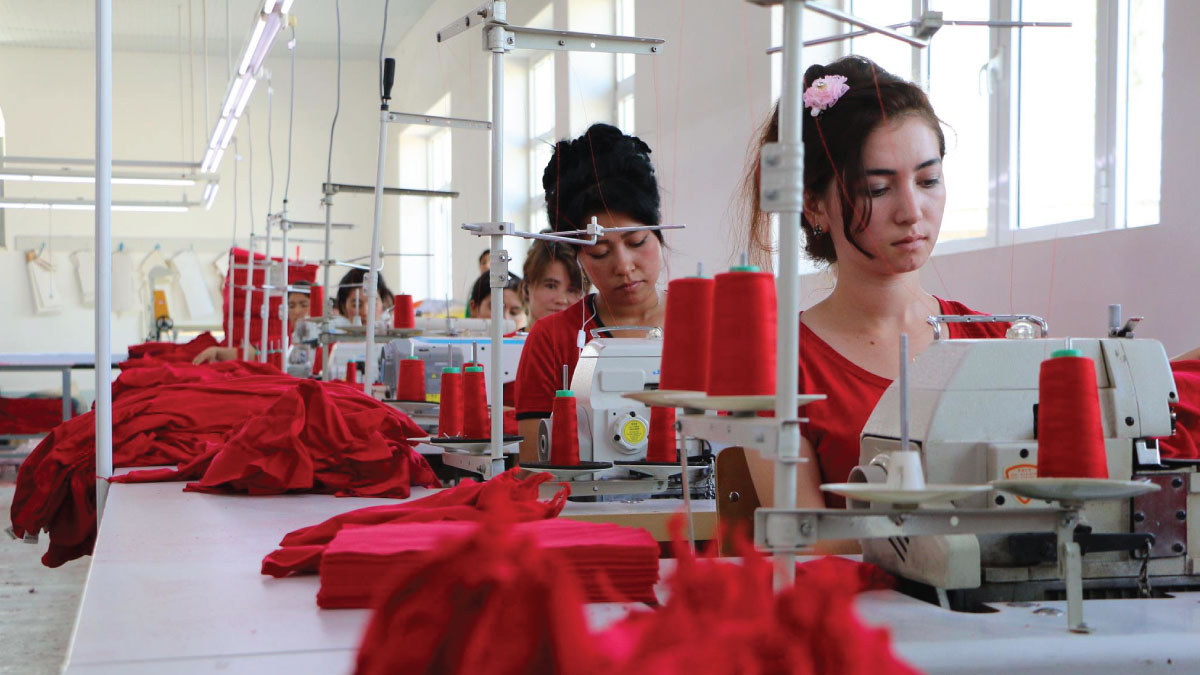COVID-19 has highlighted the gaps in existing multilateral and regional trade agreements in terms of ensuring protection and resilience during a global or regional crisis.

Women sew t-shirts at the Imron Textile Group in Namangan, Uzbekistan. The factory exports 80% of its products outside Uzbekistan. © UNDP / Karen Cirillo
UNCTAD and the UN Economic and Social Commission for Asia and the Pacific (ESCAP) are co-organizing a free online global course on negotiating regional trade agreements (RTAs) for trade in times of crisis and pandemic from 22 November to 14 December 2021.
The course seeks to help improve RTAs so that they can promote greater preparedness and resilience of their parties to cope with future pandemics and crises.
Interested participants, particularly those who work or study in the field of international trade and wish to understand the importance of adapting RTA provisions to cater to trade policy needs in times of crisis, are invited to apply.
The course will offer them an opportunity to strengthen their capacity in understanding, designing and drafting RTA provisions to better address possible future crises.
Course participants will have access to e-learning materials including reading content, video lectures, online quizzes, an online forum for discussion and three live sessions that will provide deeper and broader discussions with the lecturer and guest experts.
New handbook on trade in times of crisis
The course is based on a newly published UN handbook on provisions and options for trade in times of crisis and pandemic, which provides a range of options for provisions that address key issues for trade in times of a pandemic and other crises, and explains those legal provisions in detail.
The handbook is the outcome of a global initiative on model provisions for trade in times of crisis and pandemic in regional and other trade agreements (IMP) launched by ESCAP and UNCTAD, in collaboration with UN regional commissions, the World Trade Organization (WTO) and other partner organizations, to ensure more resilient and predictable trade during crises.
Need to bridge gaps in trade agreements
The Bridgetown Covenant adopted at UNCTAD’s 15th quadrennial conference (UNCTAD15) held in October stressed that clear and predictable multilateral and regional trade and investment rules and preferential market access can boost developing countries’ efforts at scaling the ladders of value addition.
Noteworthy achievements in regional and international cooperation have been registered over the past years, such as the historic agreement establishing the African Continental Free Trade Area, the Pacific Agreement on Closer Economic Relations Plus and the Regional Comprehensive Economic Partnership Agreement.
Yet COVID-19 has significantly disrupted trade worldwide and revealed the overall unpreparedness of international trade agreements to external shocks of a global scale, as shown by countries’ ad-hoc unilateral actions in response to the crisis.
Lack of coordination weakens pandemic response
Both trade-restrictive and trade-facilitating measures have been taken to combat the pandemic, but overall, their effectiveness has been undermined by lack of coordination. This has highlighted the gaps in existing multilateral and regional trade agreements in terms of ensuring protection and resilience during a global or regional crisis.
In light of this, the Bridgetown Covenant called on UNCTAD to focus on mitigating the negative impact of the pandemic on different countries by providing a platform for the exchange of information, experiences and lessons learned.
This includes conducting research on bilateral trade agreements, South–South cooperation, and triangular and regional cooperation, with a view to enhancing mutual trade and exchanging best practices and experiences.
Above all, regional and multilateral trade agreements can create an enabling environment for the achievement of the UN Sustainable Development Goals. The online course seeks to contribute to this objective by helping key stakeholders better design trade agreements.



